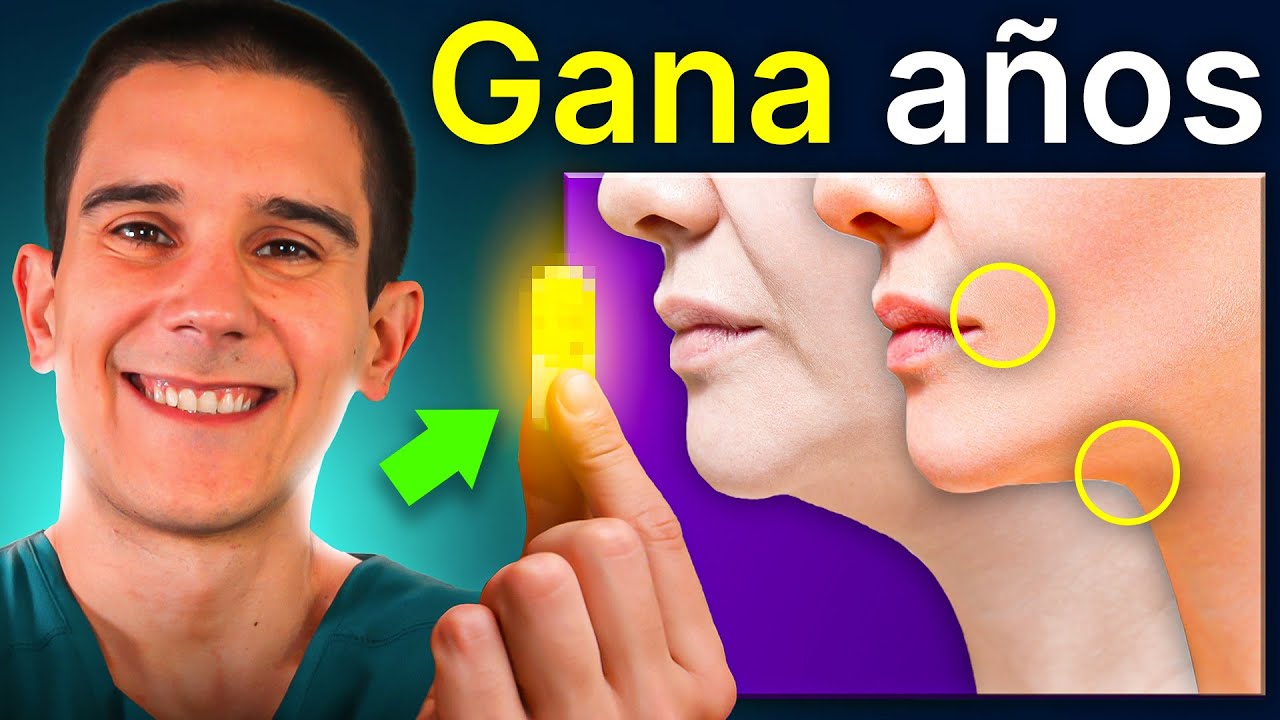The BIG NAC ( N-Acetyl Cysteine) Mistake
Summary
TLDRNAC (N-acetylcysteine) is a powerful and affordable supplement with a wide range of health benefits. It helps treat psychiatric and neurological disorders, improves fertility, detoxifies the body, and supports skin, gut, and respiratory health. NAC also has anti-aging effects and is being researched for cancer prevention. However, it can be controversial due to the FDA's attempt to regulate it as a prescription drug. This video covers its benefits, the best dosage, food sources, and common mistakes to avoid when taking NAC, including choosing high-quality supplements and timing your intake for optimal absorption.
Takeaways
- 😀 NAC (N-Acetyl Cysteine) has numerous health benefits, including improving mental health, supporting fertility, and promoting skin and gut health.
- 😀 NAC is a powerful detoxifier, helping to eliminate heavy metals and environmental toxins from the body.
- 😀 NAC is essential for boosting glutathione levels, which is the body's most powerful antioxidant, helping with aging and oxidative stress.
- 😀 It plays a significant role in treating psychiatric conditions like OCD, bipolar disorder, and addiction.
- 😀 NAC helps improve respiratory health, particularly for those with COPD, asthma, or excess mucus buildup.
- 😀 Consuming NAC through supplementation is more effective than getting it from food alone, even though sources like eggs, cheese, and poultry contain some NAC.
- 😀 Low levels of NAC can be caused by factors like poor diet, chronic illness, aging, and exposure to environmental toxins.
- 😀 Chronic stress, smoking, alcohol consumption, and medications can deplete NAC levels in the body.
- 😀 To get the most from NAC supplementation, avoid taking it with high-protein meals, as protein can interfere with its absorption.
- 😀 Proper hydration is essential when taking NAC to ensure it absorbs effectively and works as intended.
- 😀 The recommended daily dosage for maintenance is around 600 mg, while a therapeutic dose for specific health concerns is around 1,200 mg.
- 😀 Timing is important: it's best to take NAC 30 minutes before meals for optimal absorption, especially when targeting specific health conditions.
Q & A
What is NAC, and why is it so fascinating?
-NAC (N-acetylcysteine) is a supplement known for its many health benefits. It is inexpensive, widely used, and even somewhat controversial due to regulatory challenges by the FDA. Despite this, NAC is considered safe and beneficial for a variety of health issues.
Why did the FDA try to regulate NAC as a prescription?
-The FDA tried to regulate NAC as a prescription because it was originally used to treat acetaminophen (AED) overdoses. However, this regulation was controversial because NAC has many other health benefits beyond that specific use.
What are some of the key health benefits of NAC?
-NAC has numerous benefits, including helping with psychiatric and neurological disorders (e.g., OCD, addiction, bipolar), improving fertility, supporting detoxification (heavy metals and environmental toxins), promoting skin health, supporting gut health, improving respiratory function, and even showing promise in cancer prevention and anti-aging.
Can NAC be obtained through food? If so, which foods contain NAC?
-Yes, NAC can be obtained from foods like poultry, eggs, yogurt, cheese, sunflower seeds, and legumes. However, food alone may not provide sufficient amounts, and supplementation is often recommended to reap its full benefits.
How does a deficiency in NAC affect the body?
-A deficiency in NAC can lead to symptoms like fatigue, low energy, frequent infections, chronic inflammation, oxidative stress, poor recovery from injury or exercise, and neurological issues such as brain fog and mood instability.
What are common causes of NAC deficiency?
-Common causes of NAC deficiency include a poor diet, chronic illness, aging, environmental toxins, chronic stress, genetic factors, physical activity, gastrointestinal issues, immune system problems, medication use, smoking, and excessive alcohol consumption.
What mistakes should be avoided when taking NAC?
-Some common mistakes when taking NAC include taking it with high-protein meals (which can interfere with absorption), not staying hydrated, taking insufficient doses (typically 100-200 mg), taking it with food that affects digestion, using low-quality NAC supplements, and not timing the dosage properly for specific conditions.
What is the recommended dosage for NAC?
-For general maintenance, a daily dose of 600 mg of NAC is recommended. For therapeutic use to address specific health issues, a dose of 1,200 mg per day may be more effective.
Should NAC be taken on an empty stomach or with food?
-NAC should ideally be taken on an empty stomach for the best absorption. However, if it causes digestive discomfort, it can be taken with food. Timing the dose 30 minutes before a meal is also effective.
Why is the quality of NAC important?
-The quality of NAC is crucial because low-quality supplements with fillers and contaminants may not absorb well, making them less effective. It's important to choose high-quality, third-party tested NAC supplements to ensure their effectiveness.
Outlines

This section is available to paid users only. Please upgrade to access this part.
Upgrade NowMindmap

This section is available to paid users only. Please upgrade to access this part.
Upgrade NowKeywords

This section is available to paid users only. Please upgrade to access this part.
Upgrade NowHighlights

This section is available to paid users only. Please upgrade to access this part.
Upgrade NowTranscripts

This section is available to paid users only. Please upgrade to access this part.
Upgrade Now5.0 / 5 (0 votes)





